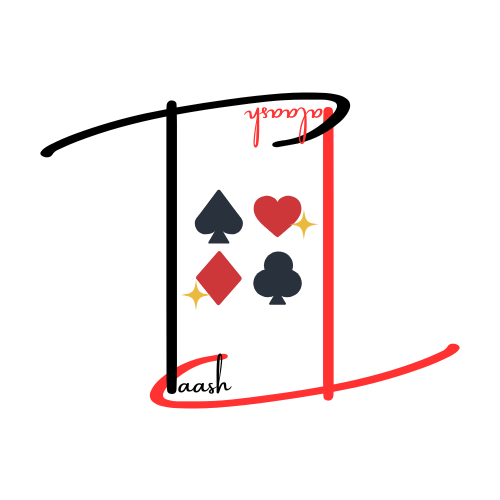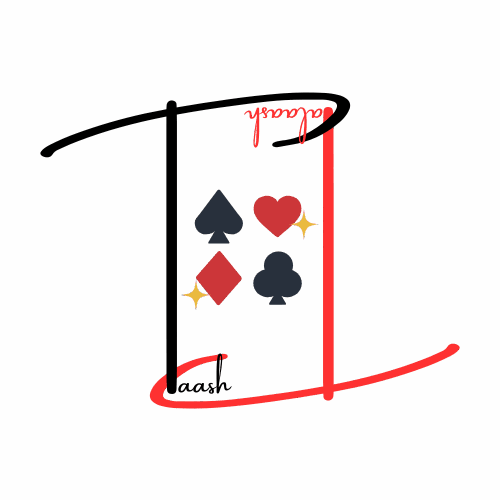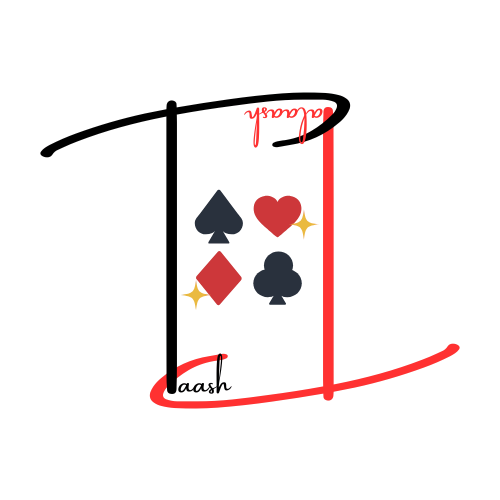📌 Quick Info
- Name of the Game: Contract Bridge
- Number of Players: 4 (in two fixed partnerships)
- Decks Required: 1 Standard 52-card deck (no Jokers)
🎯 Objective
To win as many tricks as possible and fulfill the contract bid by your team after a competitive bidding phase. The game is played in two phases: bidding and playing.
🛠️ What You Need
- 1 standard deck of 52 cards
- 4 players split into two partnerships (North–South vs East–West)
- Score sheet or electronic bridge scorer
- Table with designated positions: North, South, East, West
🔄 How to Play – Step by Step
▶️ 1. Deal
- Each player receives 13 cards.
- Players sit opposite their partners.
▶️ 2. Bidding Phase (Auction)
- Players take turns clockwise to bid the number of tricks their team will take (beyond the first six) and the trump suit.
- Bids increase in value or suit ranking. Possible suits: ♣ < ♥ < ♠ < NT (No Trump).
- The final bid becomes the “contract.”
- The team that wins the contract tries to fulfill it; the other team defends.
▶️ 3. Play Phase
- The player to the left of the declarer makes the first lead.
- The dummy (declarer’s partner) lays down their hand face-up.
- The declarer plays both their own hand and dummy’s cards.
- Each player must follow suit if possible. The highest card in the led suit wins unless a trump card is played.
▶️ 4. Scoring
- If the declarer’s team wins the contract tricks, they score positive points.
- If not, defenders score penalty points.
🧠 Example
- Contract: 3♥ (i.e., win 9 tricks with hearts as trump)
- North is the declarer; South is dummy.
- East leads with ♠K. South places all cards face up on the table.
- Declarer uses strategy to win at least 9 of the 13 tricks.
📜 Rules Summary
- 13 tricks are played each round.
- Players must follow the led suit if possible.
- Trump suits beat any card from other suits.
- Points vary depending on contracts made, doubled, or failed.
⚙️ Optional / House Rules
- Chicago Bridge: Played over 4 deals instead of a rubber (quick game format).
- Scoring variations: Rubber scoring vs duplicate scoring can be agreed upon before starting.
📚 History & Origin
- Evolved from Whist in the 19th century.
- Modern form created in 1925 by Harold S. Vanderbilt.
- Contract Bridge replaced Auction Bridge by the 1930s.
- One of the most played partnership card games in clubs and tournaments worldwide.


